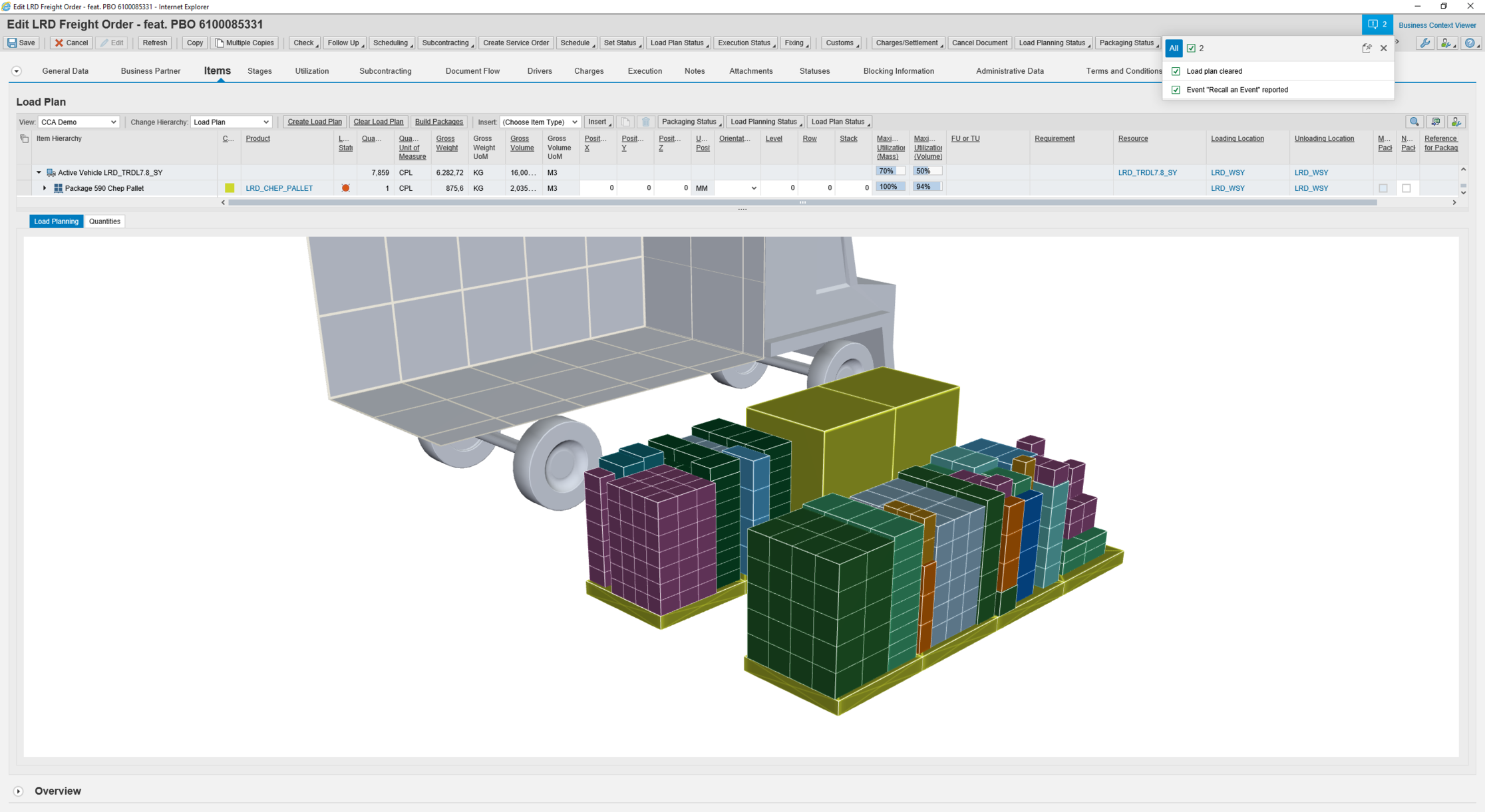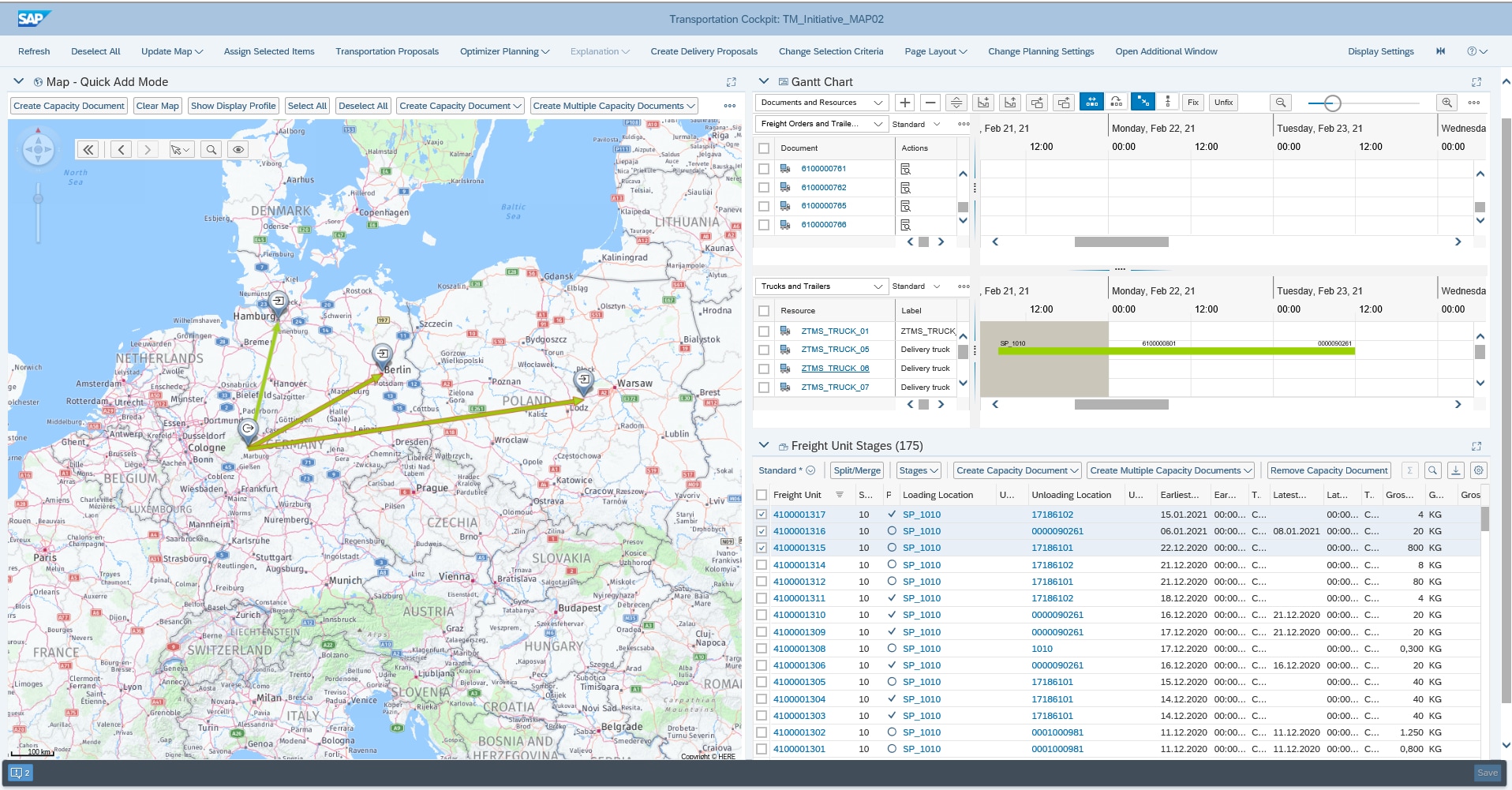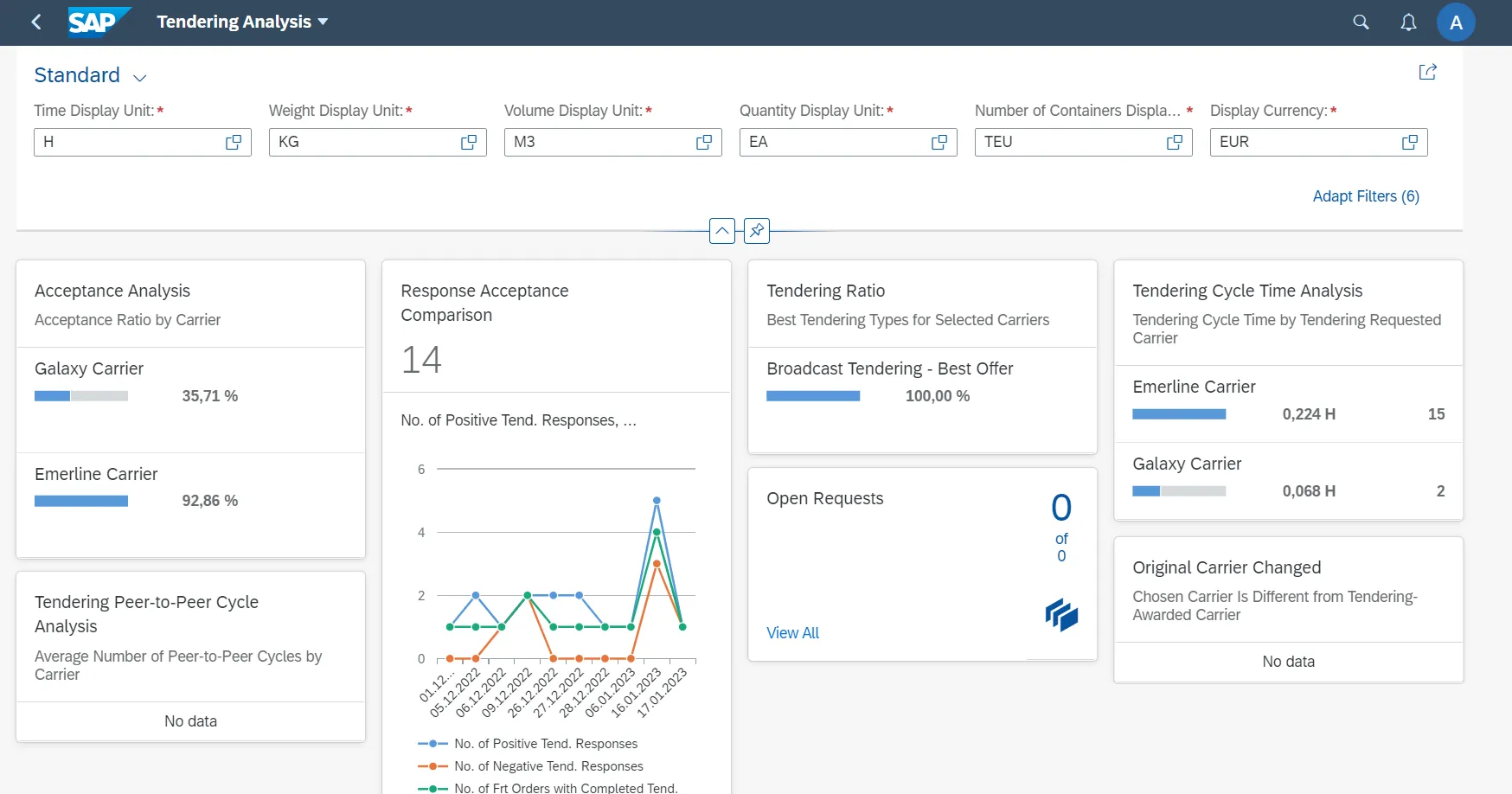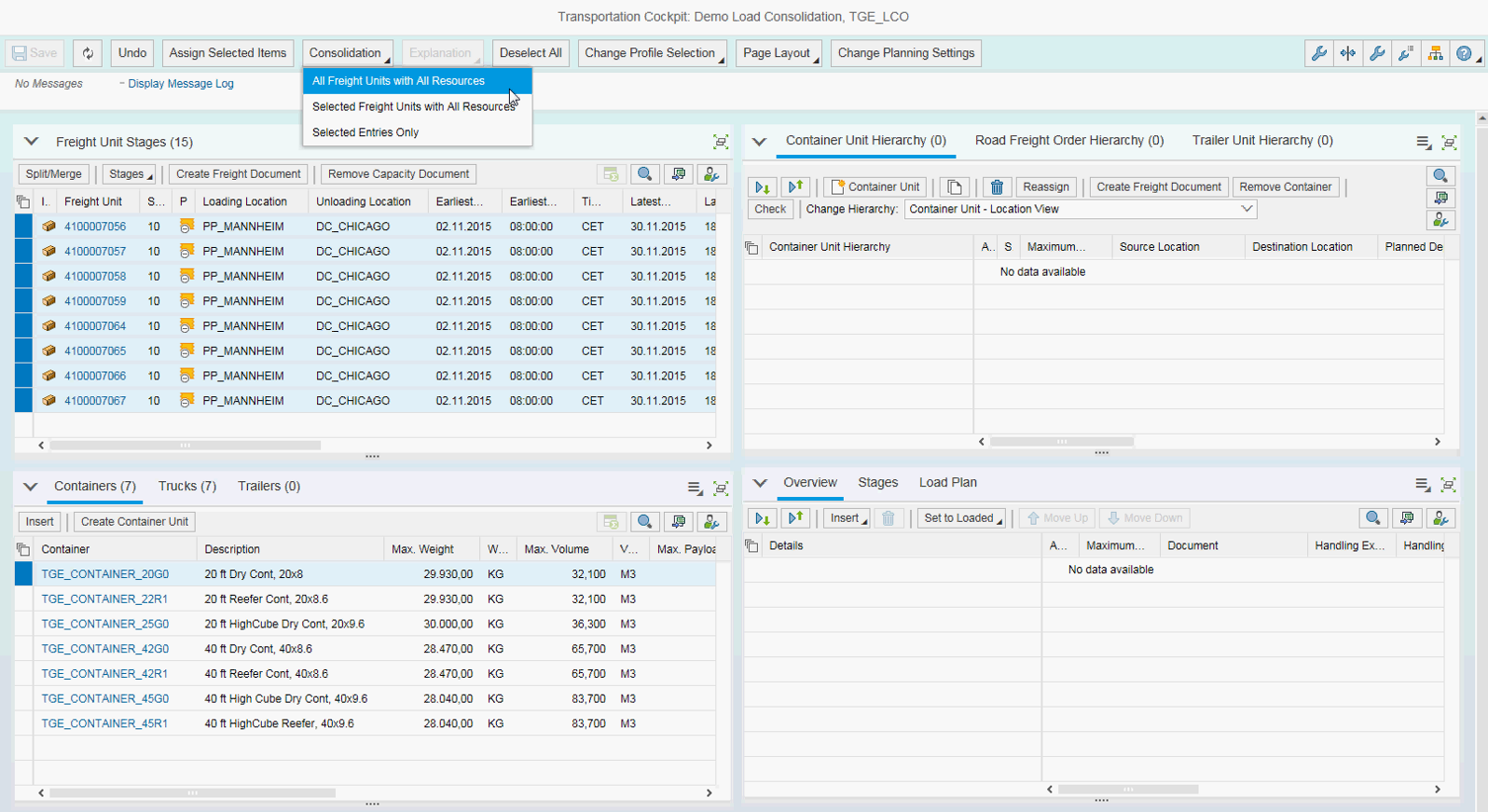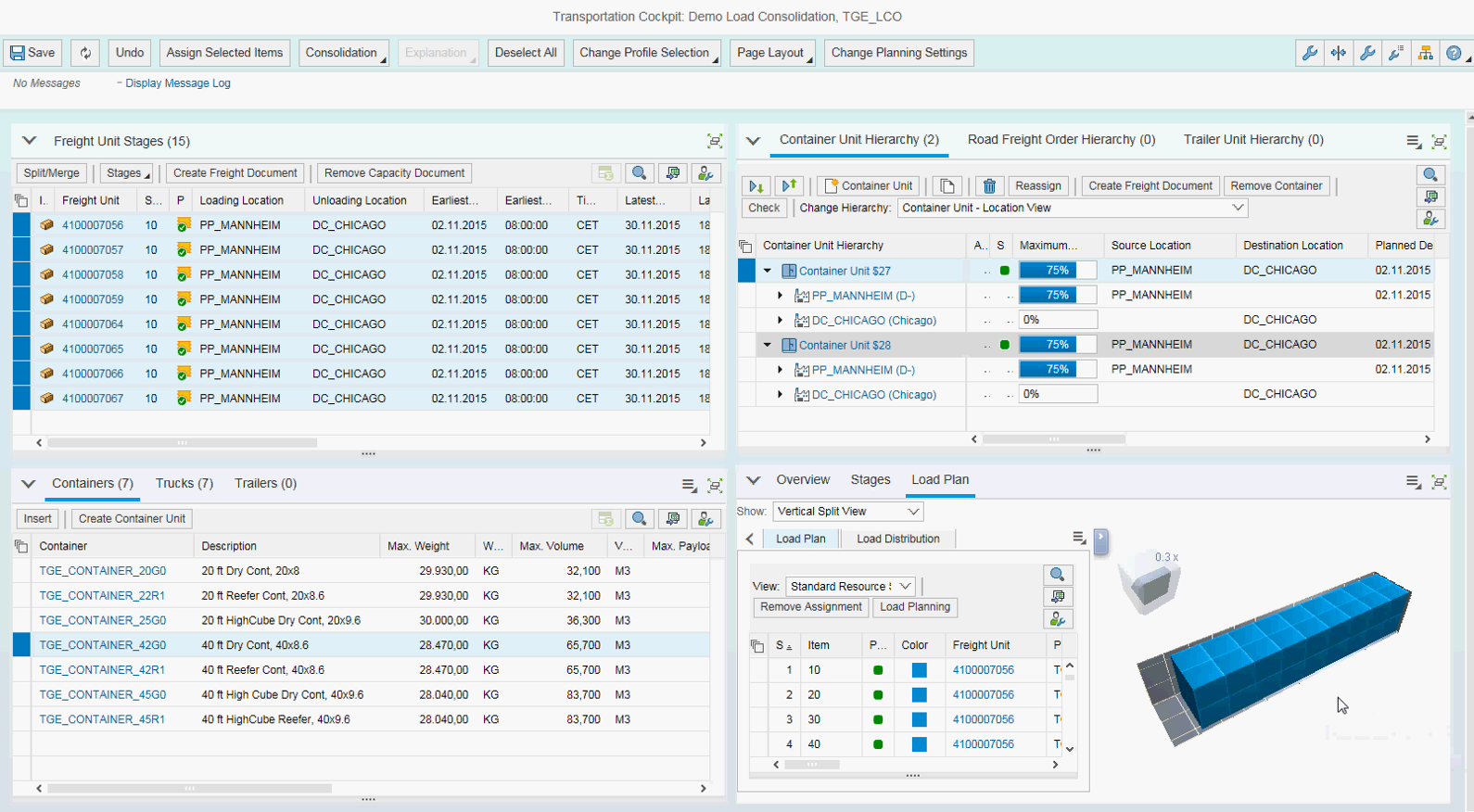Digital Logistics and Transportation (based on SAP TM)
Digital Logistics and Transportation (based on SAP TM)
Contact UsDo you run a company with extensive logistics networks and high shipment volumes? Planning to expand to new regions or countries and thinking, how to comply with local regulations?
Are you dealing with several transportation service providers and thinking how to make the optimal, cost-effective decisions?
Are you seeking ways to speed up the delivery, reduce transportation costs, and enhance transparency of shipment processes?
Meet SAP Transportation Management — an application designed to streamline and optimize your logistics processes: transportation planning and execution, freight management, order management, carrier selection, and freight cost calculation
For companies with international or multiregional operations, SAP TM offers capabilities to manage global trade compliance requirements (customs documentation, import/export regulations, trade sanctions screening, etc). It helps ensure adherence to regulatory requirements and minimize the risk of penalties.
Real-time visibility allows you to track shipments, monitor carrier performance, and proactively manage incidents. As a result — enhanced decision-making and faster responses to disruptions or delays
-
1.
Track your transport orders online. By implementing Transportation Management, you always know where the order is and when it's going to arrive.
-
2.
Capture and manage transportation-related events: pickups, deliveries, delays. Receive automated notifications and alerts to ensure timely response and resolution.
-
3.
Evaluate and select the most suitable carriers, based on predefined criteria such as cost, transit time, and service level agreements.
-
4.
Reduce transportation costs by consolidating shipments, optimizing loads, building optimal routes for drivers, and minimizing empty miles.
-
5.
Provide better customer service by delivering shipments on time, accurately tracking orders, and proactively resolving any issues.
Suitable For:
Key Users of SAP TM
-
1.
Logistics Managers: monitor transportation performance, track shipments, and manage carrier relationships to ensure on-time delivery and customer satisfaction.
-
2.
Transportation Planners: optimize shipment routing, carrier selection, mode of transport, and scheduling based on factors such as cost, service level agreements, and transit times.
-
3.
Freight Managers: streamline freight planning, optimize freight rates, and analyze freight spend to reduce transportation costs.
-
4.
Carrier Managers: select and onboard carriers, track carrier performance metrics, and ensure compliance with carrier agreements
-
5.
Supply Chain Analysts: generate insights, develop KPIs, and make data-driven decisions to optimize transportation processes.
-
6.
Customer Service Representatives: track shipments, provide status updates, and communicate with customers regarding delivery schedules and exceptions.
-
7.
Compliance Officers: monitor regulatory requirements, manage documentation, and ensure adherence to compliance standards throughout the transportation process.
-
8.
IT Administrators: manage system configurations, user access, integration with other systems, and technical support to ensure the smooth operation of SAP TM.

